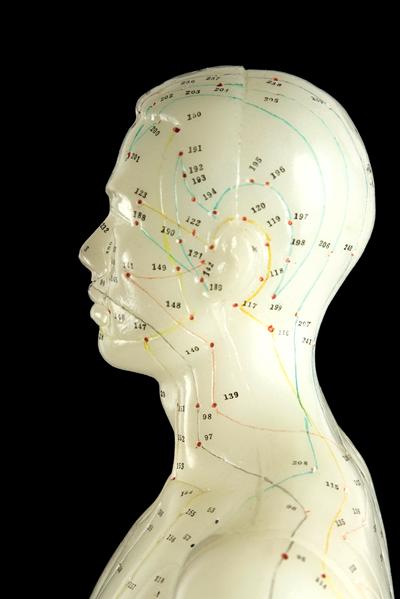Acupuncture is of benefit for some types of chronic pain

An international research collaboration, involving the University of Southampton, has shown that acupuncture is an effective treatment for chronic pain in patients with chronic back and neck pain, osteoarthritis, shoulder pain, and chronic headache.
Professor George Lewith from the University of Southampton, together with investigators at the Memorial Sloan-Kettering Cancer Centre in Boston and researchers from the Universities of Keele and York, have analysed raw individual patient data – an approach that allows for more statistically precise results – for 17,922 participants enrolled in 29 high quality, randomized trials, which took place over a number of years, that measured how well acupuncture relieved chronic pain associated with these four pain conditions.
The trials, some of which took place in Southampton, compared the pain relief benefit of acupuncture to either usual care alone, to sham (placebo) acupuncture in which the needles are inserted superficially or at a non-traditional site, while others compared all three methods. The study, published in the Archives of Internal Medicine today (10th September), shows for each of the four conditions, acupuncture’s pain relief benefit was statistically superior to both usual care and placebo acupuncture.
Acupuncture is an ancient Chinese form of treatment that involves the insertion of fine disposable needles into acupuncture points on the body. It usually involves a series of four to eight treatment sessions with six to 10 needles to obtain sustained benefit for pain. It is available in the UK both privately and through the NHS for pain relief and it is estimated that more than half a million British people each year have acupuncture for pain relief.
George Lewith, Professor of Health Research and a co-author of the study, believes these definitive findings will give acupuncture recognition as a treatment and encourage clinicians to recommend it as a safe and effective treatment.
He comments: “Acupuncture is a treatment that is not readily recommended by clinicians but these results will confirm that the effects of acupuncture are beneficial for the patient. We have shown that the pain relief effect of true acupuncture was slightly better than that of placebo acupuncture, which suggests differences between styles or practitioners of acupuncture are unlikely. However the pain relief difference between acupuncture and usual care alone was much larger and it is this difference that is most relevant to doctors and patients.”
Dr Hugh MacPherson, Senior Research Fellow in the Department of Health Sciences at the University of York, adds: “The uncertainty as to whether acupuncture is simply a placebo has led to some discomfort about referring patients with chronic pain to an acupuncturist, however the results from this new study show unequivocally that acupuncture is more than a placebo.”
The meta-analysis is ongoing as more high-quality, randomised acupuncture trials are completed. The research was supported by grants from the National Centre for Complementary and Alternative Medicine at the National Institutes of Health, the Samueli Institute and the National Institute for Health Research (NIHR) in England.
According to Andrew Vickers, PhD, at Memorial Sloan-Kettering, attending research methodologist and lead author on the study, many of the estimated three million American adults who receive acupuncture treatment each year use it to ease chronic pain, but its clinical impact has never been convincingly demonstrated.
Dr Vickers says: “There are very few treatments for chronic pain supported by the findings of an individual patient data meta-analysis such as ours, which uses a large number of patients taking part in high quality, randomised trials and we hope these findings will inform future clinical and policy decisions for acupuncture.”